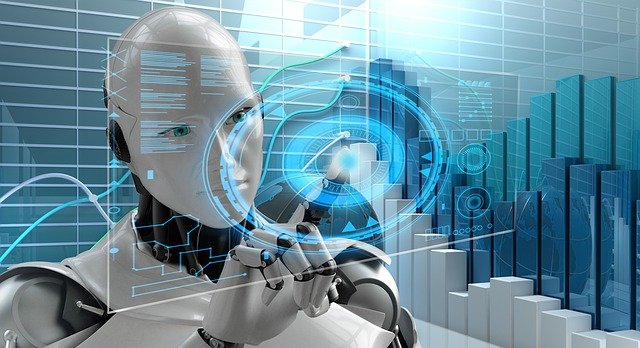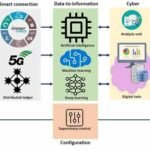
The rise of artificial intelligence (AI) is transforming many industries, and education is no exception. The integration of AI into educational applications presents exciting opportunities as well as potential challenges.
The study, published in BMC Psychology by researchers from Wenzhou University of Technology, explored the perspectives of students and teachers on AI-integrated educational applications. The researchers employed a mixed-methods approach, combining in-depth interviews with a quantitative survey. Their findings paint a complex picture, highlighting both opportunities and challenges.
The intersection of AI and education
AI, a subset of computer science that enables machines to simulate human intelligence, has made significant advancements in recent years. In the educational context, AI applications range from automated grading systems to personalized learning platforms. While research has explored AI’s influence on various aspects of education, its impact on students’ creativity and academic emotions remains a critical area of investigation.
AI as a catalyst for creativity
AI-integrated educational applications have the potential to revolutionize traditional teaching methods by providing personalized learning experiences tailored to each student’s needs. Through adaptive feedback, diverse learning materials, and interactive environments, AI fosters an atmosphere conducive to creative expression. By analyzing students’ performance and suggesting novel approaches, AI allows students to explore unconventional solutions and engage in critical thinking.
Additionally, AI can facilitate collaborative and interdisciplinary learning experiences, exposing students to diverse perspectives and ideas. Virtual reality simulations and augmented reality tools immerse students in interactive environments where they can experiment, innovate, and co-create content. AI-enabled platforms offer limitless possibilities for creative expression and exploration, transcending the limitations of physical classrooms.
The role of AI in fostering academic emotions
Academic emotions—the affective states experienced by students and educators in educational settings—significantly influence learning outcomes and overall well-being. AI technologies offer unprecedented opportunities to monitor, analyze, and respond to students’ emotional needs in real time.
Through affective computing techniques and sentiment analysis, AI can detect subtle cues indicating students’ emotional states and adjust learning experiences accordingly. Adaptive tutoring systems can dynamically adjust task difficulty, provide scaffolding support, or offer motivational prompts based on students’ emotional responses. Additionally, AI-integrated learning platforms can incorporate gamification elements and personalized avatars to enhance emotional engagement.
AI can stifle creativity and provoke frustration
A key concern is AI’s potential to restrict creativity. Rigid frameworks and repetitive interactions can stifle independent thinking and innovation. This, coupled with the pressure of constant AI assessments, may lead to emotional disconnection. Students participating in the study reported feeling impersonal connections with AI and experiencing technical frustrations that disrupted their learning flow.
However, the story doesn’t end there
The study also found an upside to AI integration. These applications can stimulate creativity by introducing new ideas and problem-solving techniques. Interactive elements enhance engagement, while personalized feedback can empower students. Gamified features and 24/7 accessibility further contribute to a positive emotional learning environment.
Balancing the scales: A call for thoughtful implementation
The research presents a clear picture: AI in education is a double-edged sword. While it fosters creativity and engagement, it also carries the risk of hindering these very aspects. The key lies in thoughtful implementation. Educational institutions must carefully consider the design and functionality of AI tools to maximize benefits and mitigate challenges.
Continuous evaluation is crucial
The study also highlights the importance of continuous evaluation. Both educators and students should be involved in assessing the effectiveness of AI tools and identifying areas for improvement. By learning and adapting continuously, we can ensure AI plays a truly transformative role in education, fostering both academic success and a positive learning environment.
Conclusion: The future of AI in education
This study presents a compelling picture of AI’s dual impact on university students’ creativity and emotions. While fostering creativity and engagement has clear benefits, potential drawbacks—such as stifled creativity and increased anxiety—must be carefully considered. To optimize AI’s role in education, a collaborative approach is essential. Educators, developers, and students must work together to ensure AI applications are thoughtfully implemented and continuously evaluated. This will allow us to unlock AI’s full potential in education, fostering creativity and promoting a positive learning experience for all.
This is only the beginning of the conversation about AI in education. As technology continues to evolve, so too must our approach to harnessing its potential for a more engaging and enriching learning experience.
The study was funded by the 2024 Higher Education Research Project, of the Zhejiang Provincial Association of Higher Education (ZAHE).
Contact
Qiu Chen
School of Humanities, Wenzhou University
Wenzhou, Zhejiang, 32500, China
Email: chenqiu@wzu.edu.cn
Reference (open access)
Lin, H., Chen, Q. Artificial intelligence (AI) -integrated educational applications and college students’ creativity and academic emotions: students and teachers’ perceptions and attitudes. BMC Psychol 12, 487 (2024). https://doi.org/10.1186/s40359-024-01979-0
Editor and founder of “Innovar o Morir” (‘Innovate or Die’). Milthon holds a Master’s degree in Science and Innovation Management from the Polytechnic University of Valencia, with postgraduate diplomas in Business Innovation (UPV) and Market-Oriented Innovation Management (UPCH-Universitat Leipzig). He has practical experience in innovation management, having led the Fisheries Innovation Unit of the National Program for Innovation in Fisheries and Aquaculture (PNIPA) and worked as a consultant on open innovation diagnostics and technology watch. He firmly believes in the power of innovation and creativity as drivers of change and development.





